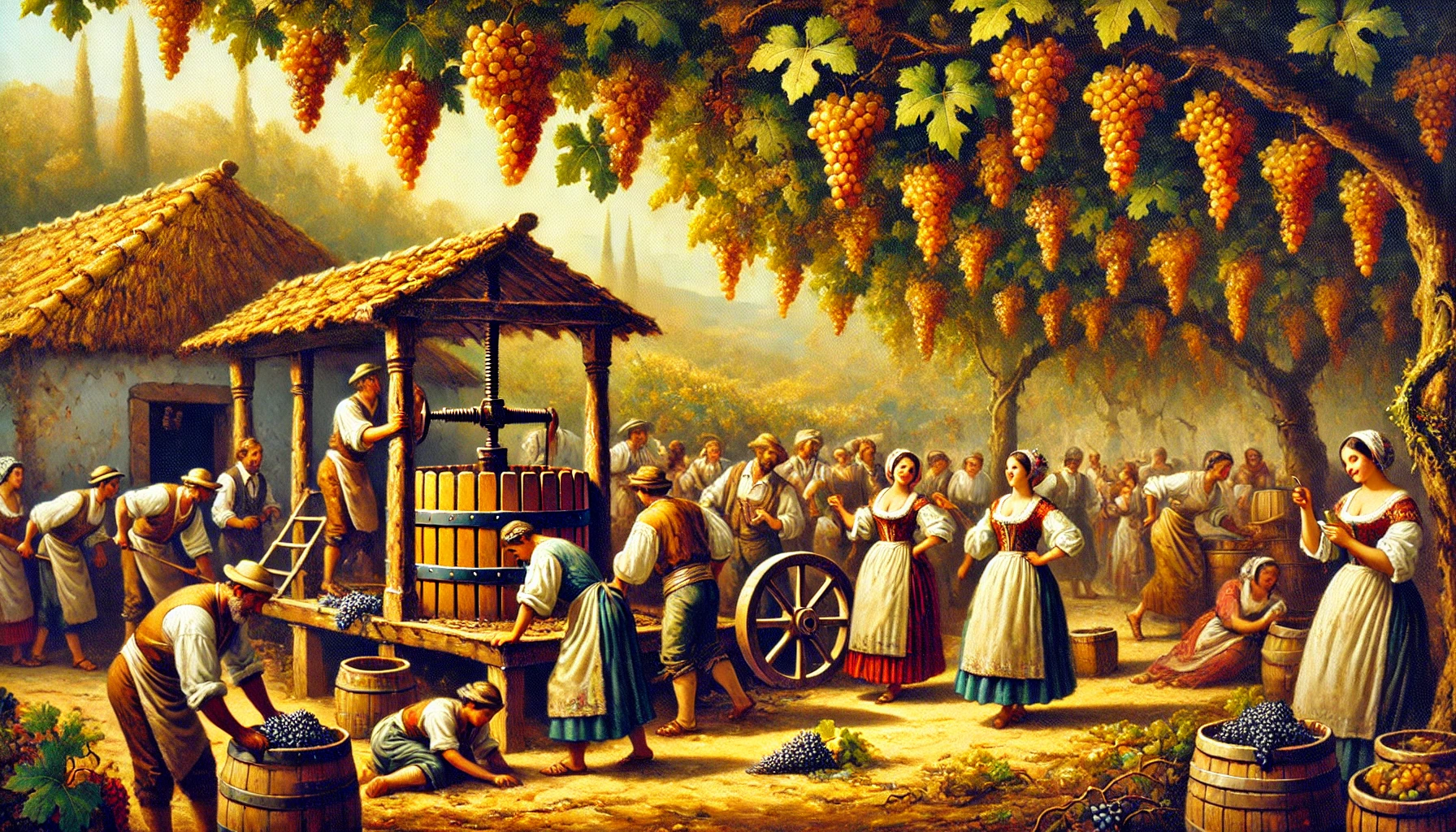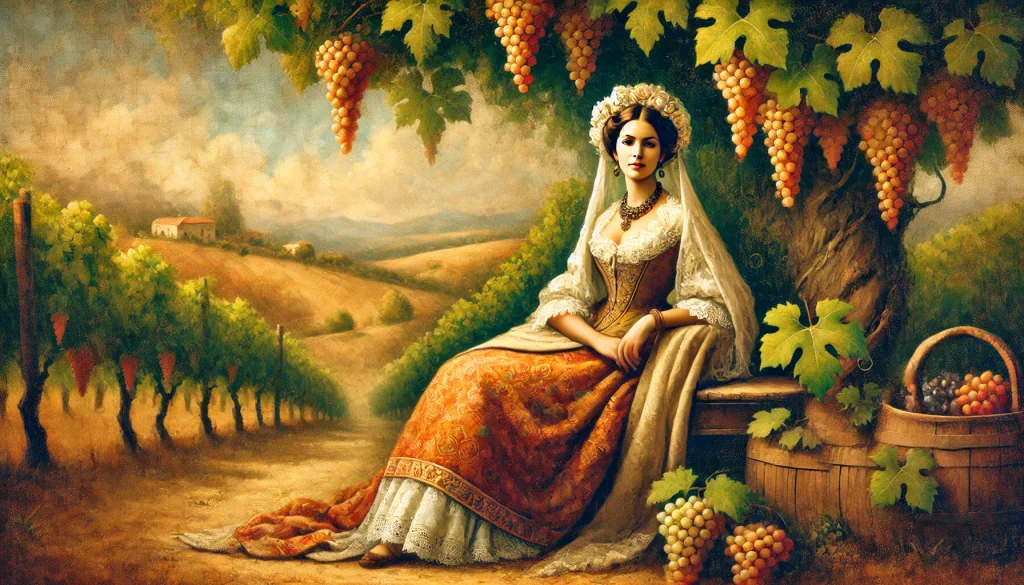
Autumn in Portugal feels like magic. The vineyards turn shades of gold and red, and the air carries a hint of something special—something that promises warmth and joy. For wine lovers and locals alike, this time of year signals the start of the grape harvest. It’s more than a farming ritual; it’s a celebration of culture, community, and tradition that’s woven into the fabric of Portuguese life. And at the heart of it all, you’ll often find a glass of Jeropiga.
In the rolling hills of Douro, Alentejo, and beyond, friends and families gather to celebrate the year’s bounty. They sing, they feast, and they toast to another fruitful season. Jeropiga, with its sweet, fortified flavors, is a staple during these gatherings, adding a unique touch to the festive spirit. Let’s take a journey through Portugal’s harvest season and discover why Jeropiga has become a beloved part of the celebration.
The Heartbeat of Portuguese Harvest: Tradition Meets Community
The grape harvest, or vindima, is more than just picking grapes. It’s a time for friends, families, and even visitors to come together. Generations work side by side, from the youngest children carrying baskets to the older folks sharing stories of harvests long past. The vindima is labor-intensive, but it’s joyous work filled with laughter, song, and, of course, good food and drink.
Each region has its unique customs. In the Douro Valley, families often start harvesting in late September. The steep hillsides require careful handpicking, and every grape becomes part of the area’s famous wines. In Alentejo, where the land stretches flatter, large groups often gather to make the harvest easier and quicker. Wherever you go, the essence remains the same: hard work followed by even harder celebration.
Jeropiga: The Sweet Elixir of Harvest Time
As the grapes come in, a special drink makes its appearance—Jeropiga. Unlike regular wine, Jeropiga doesn’t ferment fully. Made by mixing grape must with aguardente, a Portuguese brandy, Jeropiga keeps much of the grape’s natural sweetness. This sweet, strong drink isn’t just a beverage; it’s a symbol of harvest time.
During the festivities, people pour Jeropiga into small glasses. They raise them in toasts that echo across the vineyards. The drink’s warmth and rich flavor offer the perfect break after a long day of picking grapes. It’s sweet, comforting, and uniquely Portuguese—a fitting tribute to the harvest season.

Feasting After the Harvest: Food as Celebration
No harvest celebration is complete without food. In Portugal, the post-harvest meal is a feast, a thank-you to the people who worked hard in the fields and a way to savor the season’s bounty. Tables overflow with regional specialties. In the north, you might find hearty stews like caldo verde, a warming mix of potatoes, kale, and chouriço. In the Alentejo, migas, a savory bread-based dish, takes center stage, often served with pork.
Cheeses, olives, and freshly baked bread round out the meal. And no one forgets the desserts—almond cakes, fig pastries, and honeyed treats that pair perfectly with Jeropiga. It’s a feast that nourishes both body and spirit, reminding everyone why the harvest is worth celebrating.
Music, Dance, and Community: The Joy of the Vindima
In many villages, the harvest celebration continues late into the night. Local musicians play traditional Portuguese songs, and people dance in a circle, hands linked, feet moving to the rhythm of the accordion or guitar. Some songs are playful, while others tell stories of past harvests, love, or the struggles of vineyard life.
Jeropiga flows freely as the music fills the air. It’s common for villagers to gather around a bonfire, sharing stories, sipping Jeropiga, and celebrating their connection to the land. Even tourists are welcomed warmly, invited to join in the dancing, drinking, and laughter.
The Future of Harvest Traditions: Keeping Jeropiga Alive
While the world of wine grows increasingly modern, Portugal holds tight to its traditions. Many winemakers still produce Jeropiga using age-old methods. Some fear that Jeropiga might fade as wine laws and preferences change. However, young winemakers are starting to embrace Jeropiga, giving it a new twist while respecting its heritage.
Portugal’s younger generations understand the importance of keeping this sweet, fortified drink alive. Jeropiga isn’t just a drink; it’s a connection to the past and a celebration of the present. And during the harvest season, it serves as a reminder of what makes Portuguese culture so rich.
Bringing the Portuguese Harvest Celebration to Your Home
If you can’t make it to Portugal for the harvest, why not bring a bit of it to your home? Host a Portuguese-inspired gathering with friends and family. Try making your own Jeropiga if you can source grape must and aguardente. Prepare traditional dishes, play some Portuguese music, and share stories. It’s a wonderful way to honor the spirit of the vindima, wherever you are.
Closing Thoughts: A Toast to Tradition
Harvest celebrations in Portugal are more than events. They’re a way of life, a testament to the Portuguese people’s love for their land, their culture, and each other. Jeropiga, with its sweet warmth, stands as a symbol of that love—a drink that’s both simple and profound, much like the harvest itself.
So, if you ever find yourself in Portugal during the vindima, raise a glass of Jeropiga. Toast to the grapes, to the hard work, and to the beauty of tradition.